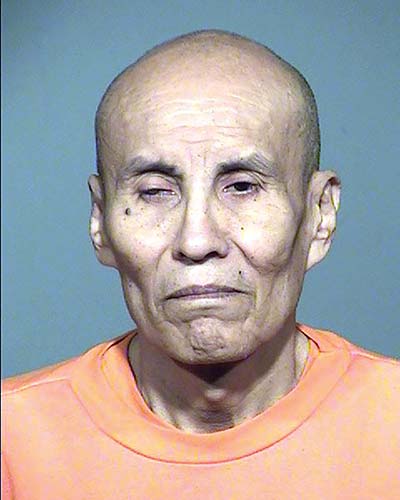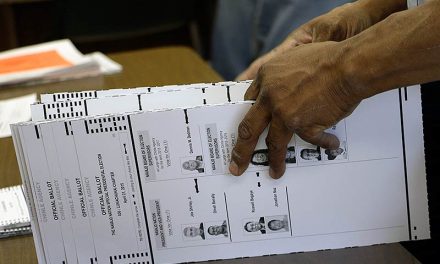
Condemned Fort Defiance man misses Navajo food
WINDOW ROCK
He always mentions frybread and mutton stew.
And he always asks what new progress the Navajo Tribe has made in the past 30-plus years, said Lenny Foster, a retired supervisor for the Navajo Nation Corrections Projects.

Courtesy of Arizona Department of Corrections
Clarence Dixon
Foster spoke of Clarence Dixon, the condemned 66-year-old Navajo man from Fort Defiance.
“He’s asking what’s some of the new progresses have been made, the roads, any business development, or if the Navajo government has been progressing,” Foster said on Mother’s Day.
Foster said he’s been counseling Dixon, who is scheduled to be executed on Wednesday morning for the 1978 rape and murder of Arizona State University student Deana Bowdoin.
Through DNA evidence that linked him to the 23-year-old’s murder case, Dixon was convicted and sentenced to death in 2008.
He was already serving a seven-consecutive, life-term sentence for the kidnapping and sexual assault of a Northern Arizona University student when he was sentenced to die.
“I’ve been counseling him once a week since March for 45 minutes since March,” Foster said.
He said he would not be performing a sweat-lodge ceremony with Dixon, adding, “We’ll just do a prayer spiritual counseling over the phone.”
The request to counsel Dixon was made by the chaplain with the Arizona Department of Corrections, said Foster.
Since being asked, Foster said he had an obligation to provide him with spiritual counseling in Navajo traditional beliefs. He became acquainted with Dixon in 1988 at the Perryville State Prison in Goodyear, Arizona, while performing a sweat-lodge ceremony.
Since being incarcerated for more than half of his life, Foster said Dixon taught himself to speak the Navajo language. He also wanted to know if the Navajo people still had no running water or electricity and Navajo teachings, he added.
“It’s thought-provoking questions he has,” Foster said.
Most of all, Dixon liked bringing up frybread and mutton during their conversations.
“He likes to bring that up,” Foster said. “That was always a delicacy for him. He misses frybread and mutton stew. He wanted to know if there were sales or shops.”
He said he told Dixon it was sold at flea markets and restaurants.
“He’s missed out on a lot,” Foster said.
Dixon’s attorneys have argued that his Eighth Amendment right was violated because he has a severe mental illness.
Former Maricopa County Superior Court Judge Sandra Day O’Connor found Dixon not guilty because of insanity and dismissed the assault charges he was facing for hitting a 15-year-old girl over the head with a metal pipe.
Two days after the dismissal, Dixon sexually assaulted and murdered Bowdoin.
On June 3, Pinal County Superior Court Judge Robert Olson ruled Dixon was competent to be executed and denied commuting his execution.
A week before Olson’s ruling, Dixon’s attorneys went before the Arizona Board of Executive Clemency on April 28, asking the board and Arizona Gov. Doug Ducey to commute his death sentence. The clemency board denied his request.
One of the attorneys representing Dixon, Eric Zuckerman, said of Olson’s decision, they’d ask the Arizona Supreme Court to “apply the correct standard and ensure Dixon” would not be executed while mentally incompetent.
On Monday, Dixon’s attorneys argued the lethal injection drug, pentobarbital, had expired. The state of Arizona agreed to use new lethal injection drugs for Dixon.
According to Navajo traditional beliefs, Foster said the taking of life was “taboo.”
“Our teachings have taught us not to take life and have been passed down to us by our grandmothers and grandfathers,” he said.
He added, “Indian people should not be engaged in any behavior that harms other people.”
The former supervisor for the Navajo Corrections Project said “he sensed a sense of remorse” from Dixon.
“It’s a very sad situation for him,” he said. Dixon is scheduled to die at the Arizona State Prison Complex in Florence, Arizona, on Wednesday morning at 10 a.m.








 Highway 264,
Highway 264, I-40, WB @ Winslow
I-40, WB @ Winslow